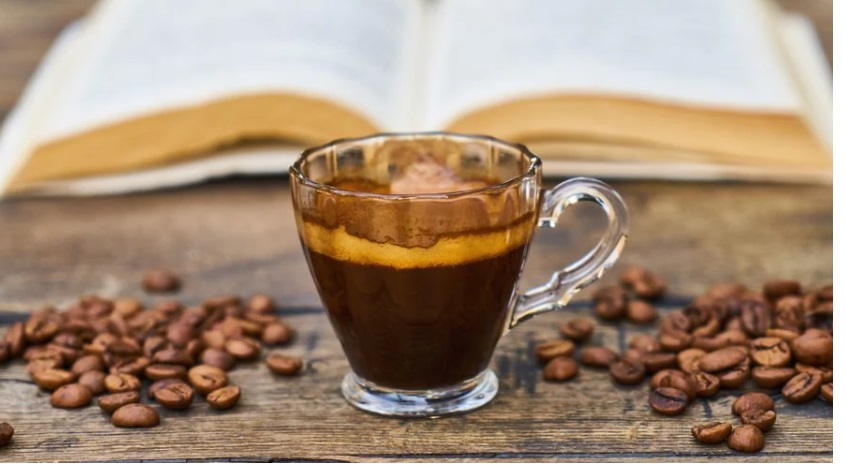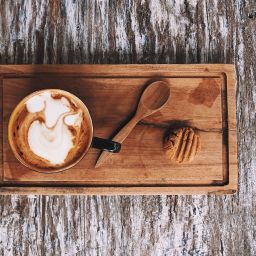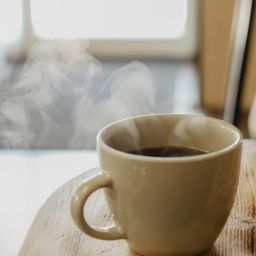
French roast coffee is famed for its dark, smoky flavor—often the darkest roast available. It’s beloved for its bold taste and the deep, rich aroma it exudes. When discussing French roast, a common question arises: How much caffeine does it really contain? This introduction sets the stage to explore that very query, delving into the intriguing world of French roast coffee’s caffeine content.
Key Takeaways on Caffeine in French Roast Coffee
- Average caffeine content: An 8 oz cup of French roast coffee generally contains between 60 to 95 mg of caffeine.
- Comparison with other coffee roasts: French roast coffee typically has slightly less caffeine compared to lighter roasts due to the longer roasting process which may reduce caffeine levels.
- Factors affecting caffeine levels: The caffeine content can vary based on the type of beans used, the brewing method, and how much coffee is used to brew a cup.
Analyzing Caffeine Levels in French Roast Coffee
The caffeine content in French roast coffee can vary significantly, but most cups will deliver between 60 to 95 mg. This range is influenced by several factors that coffee aficionados should be aware of. First, the type of coffee bean plays a crucial role—Arabica beans typically have less caffeine than Robusta beans.
Secondly, the way you brew your coffee also impacts the caffeine content. Methods like French press or espresso can extract different levels of caffeine. Lastly, the more coffee grounds you use, the higher the caffeine in your finished brew. Understanding these aspects can help you better manage your caffeine intake according to your personal preference or sensitivity.
Brewing Methods and Their Impact on Caffeine Extraction
Different brewing techniques can significantly impact the caffeine content in your cup of French roast coffee. For instance, a French press, which allows coffee grounds to steep directly in hot water, typically extracts more caffeine compared to a drip brew method. The drip method filters water through the grounds more quickly, potentially resulting in less caffeine per cup.
Espresso, on the other hand, uses pressurized hot water and finely ground coffee beans, leading to a highly concentrated coffee shot. This method extracts a considerable amount of caffeine in a short brewing time, making it the go-to for a quick caffeine boost.
Comparison With Other Coffee Roasts
When comparing French roast to other types of coffee roasts, the differences in caffeine content might be less dramatic than you’d think. Despite its bold, intense flavor, French roast doesn’t necessarily pack more caffeine. In fact, lighter roasts such as light and medium roasts might retain slightly more caffeine, since the roasting process is shorter and less caffeine is burnt off compared to darker roasts. However, the actual difference is minimal.
This means that if you’re choosing a coffee based on its caffeine kick, the roast level should not be the primary factor affecting your choice. Instead, you might focus more on the flavor profile each roast brings.
Best Practices for Brewing French Roast Coffee
Brewing the perfect cup of French roast coffee is both an art and a science. To start, selecting the right grind size is crucial. For French roast beans, a medium to coarse grind works best, especially if you’re using a French press. This allows for optimal extraction without over-extracting bitter flavors. When it comes to water quality, always use fresh, filtered water. This ensures that no impurities interfere with the natural flavors of the coffee.
Finally, getting the coffee-to-water ratio right can make or break your brew. A general guideline is to use about 1 to 2 tablespoons of coffee per 6 ounces of water, adjusting to taste. With these tips, you’re on your way to a delightful cup of French roast.
FAQs
Does French roast coffee contain more caffeine than other roasts? Contrary to popular belief, French roast coffee typically contains slightly less caffeine than lighter roasts. This is due to the extended roasting process, which can burn off some of the caffeine.
Can decaffeinated French roast still contain caffeine? Yes, decaffeinated French roast coffee can still contain trace amounts of caffeine. While most of the caffeine is removed during the decaffeination process, a small amount may remain, which is important for those particularly sensitive to caffeine.
How does the roasting process affect caffeine content? The roasting process impacts caffeine content by the length and temperature at which beans are roasted. Generally, the longer and darker the roast, the less caffeine remains in the beans. However, this reduction is usually minimal, so the impact on your caffeine intake might be less than expected.
Final Thoughts
In this exploration of French roast coffee and its caffeine content, we’ve uncovered some key insights that coffee lovers should consider. French roast coffee, known for its dark and smoky flavor, generally contains about 60 to 95 mg of caffeine per 8 oz cup. This makes it slightly lower in caffeine compared to lighter roasts, a result of the longer roasting process which can degrade some caffeine.
The caffeine content in French roast can also vary depending on the brewing method used. Methods such as the French press, which allow coffee to steep longer, can extract more caffeine, while espresso provides a concentrated burst despite its small serving size. Water quality and the coffee-to-water ratio are also crucial in crafting the perfect cup, with filtered water and precise measurements enhancing the brew.
It’s important to remember that while French roast may not be the strongest in terms of caffeine, its bold flavor and rich aroma make it a favorite among coffee enthusiasts. For those sensitive to caffeine or looking to manage their intake, understanding these variables can help in choosing the right coffee and brewing method.









